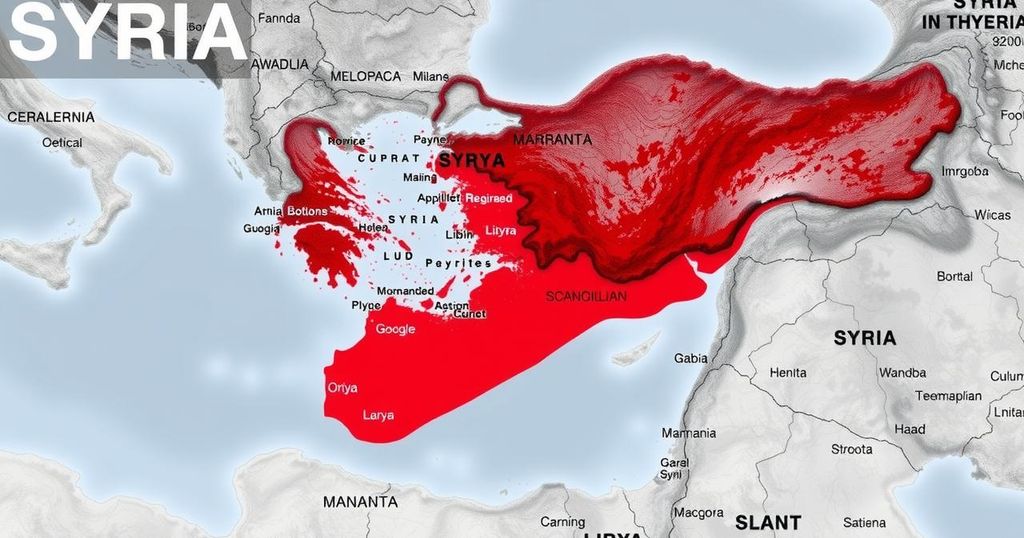After Assad: Russia’s Strategic Shift from Syria to Libya

The ouster of Bashar al-Assad in Syria has prompted Russia to reassess its military presence, now focusing on Libya, where it has begun supporting the forces of Khalifa Haftar. Following Assad’s removal, officials loyal to him have sought refuge in Libya, while Russian military assets and naval resources have shifted towards Benghazi. This development raises concerns over Russia’s ambitions in Africa and potential escalations in regional conflicts.
The removal of Syrian leader Bashar al-Assad has shifted international dynamics, particularly for Russia, which has redirected its military focus towards Libya. Following Assad’s ousting, reports indicated that several officials loyal to the Assad regime arrived in Benghazi, Libya. Moscow is increasing military transport between Syria and Libya, withdrawing assets from its base in Syria while strengthening ties with Khalifa Haftar’s forces in eastern Libya. As Russian naval presence in Libya intensifies, analysts express concern over the implications for regional stability and Russia’s broader geopolitical maneuvers in Africa.
The shift in tactic illustrates Russia’s need to maintain strategic footholds in the Mediterranean following the instability in Syria. The Tartus naval base in Syria, a crucial asset for Russia, is now complemented by emerging operations in Libya, where it seeks to secure access through alliances with local powers like Haftar. This engagement complicates the geopolitical landscape further, drawing the attention of Western nations wary of Russia’s growing influence in the region.
Khalifa Haftar, who previously benefited from Syrian regime support, may gain more power due to Russia’s increasing reliance on him. The relationship between Haftar and Assad has been characterized by shared authoritarian practices and illicit business operations, particularly in human and drug trafficking. Evidence substantiates the ties between their networks, which have facilitated various operations across borders.
Despite acknowledging Haftar’s connections to Russia, Western powers continue to engage him in hopes of stabilizing Libya. The lack of effective action thus far has allowed foreign influences to persist in Libya, where Turkey and Russia maintain a complicated yet collaborative relationship despite backing opposing sides. The ongoing presence of foreign military elements exacerbates existing conflicts in North Africa and could facilitate the transfer of resources to other conflict zones.
The geopolitical landscape in the Mediterranean region is rapidly evolving following the recent political turmoil in Syria. With the fall of Assad, Russia reassesses its military deployments, focusing on Libya as a new strategic front. The complicated history of alliances and conflicts in the region reflects deep-rooted issues of power, sovereignty, and international influence, which continue to play out in a multifaceted manner. The dynamics between Russia, Syria, and Libya, particularly through figures like Khalifa Haftar, are crucial for understanding current and future conflicts in North Africa and beyond. Regional upheavals since the Arab Spring have left Libya fragmented, with competing factions vying for control. The enduring instability makes Libya an attractive point for external powers like Russia, which benefits from forming alliances with local warlords to expand its influence and military capacity. As the situation with Assad unfolds, Libya remains a focal point for international military operations, drawing attention from various powers that wish to assert control in the region.
In conclusion, the removal of Bashar al-Assad has had wide-ranging implications, particularly for Russia’s military strategy in Libya. The shift suggests a recalibration of alliances and a potential increase in conflict dynamics not only within Libya but also in neighboring regions impacted by the movements of Russian military assets. As Haftar’s position strengthens with Russian support, analysts predict potential escalations in surrounding conflict zones, highlighting the intricate web of geopolitical interests that continue to shape the Mediterranean landscape.
Original Source: www.france24.com








